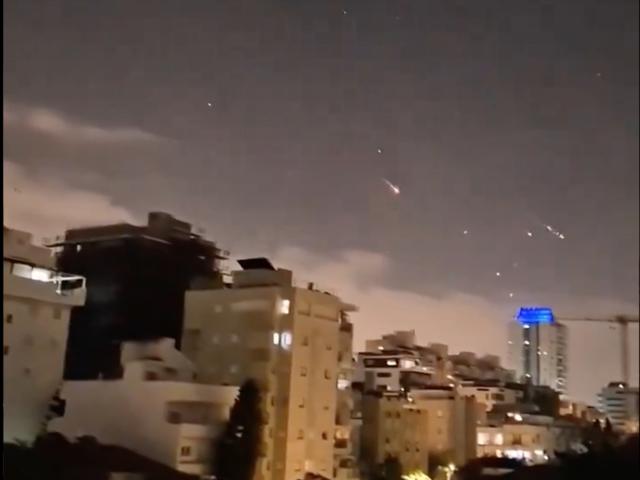Overnight, Tehran initiated a significant offensive against Israel by launching a multitude of drones and missiles, purportedly in retaliation for the recent killings of Iranian generals in Damascus. Despite the formidable display of firepower, the attempt was rendered ineffective as not a single projectile breached Israeli airspace, thanks to the combined defensive efforts of Israel and its allies, including the United States, Jordan, the United Kingdom, and France.
This incident perhaps underscores a critical perception: Iran's military capabilities, while robust in projection, falter significantly under real-world pressures against a well-coordinated international defense network. This was further evidenced by Iran’s own representation to the United Nations. Following the drone launch, Tehran declared an end to its retaliatory measures against what it perceived as aggressions in Damascus, indicating a possible acknowledgment of their strategic miscalculation.
So after Iran's attack last night on Israel it can be said that Iran has failed! Not a single drone or cruising missile penetrated Israel, and the absolute majority of ballistic missiles fired from Iran were successfully intercepted. But Iran did manage to achieve 3 things:
— יוסף חדאד - Yoseph Haddad (@YosephHaddad) April 14, 2024
1-… pic.twitter.com/3SisjsR4dy
Iran's communications further hinted at a restraint in immediate hostilities but warned of a more severe response if provoked again, framing the situation as a bilateral conflict with Israel, and explicitly urging the U.S. to refrain from involvement. This rhetoric positions Iran in a defensive stance while still engaging in aggressive posturing, a common tactic in international relations aimed at maintaining a facade of strength.
Tragically, the real impact of this military engagement was felt by civilians, particularly a 7-year-old Arab Israeli girl from a Bedouin community near Arad. She was severely injured by missile shrapnel—a stark reminder of the human cost of these conflicts. Despite Iran’s claims of a successful operation, the only confirmed damage was to this civilian, further highlighting the disproportionate nature of military errors and their grave consequences on innocent lives.
Israeli response systems, including the Magen David Adom (MDA), were on high alert, with paramedics providing crucial care to the wounded and assisting numerous others impacted by stress and panic. This response underscores the resilience and preparedness of Israeli civil defense measures in safeguarding its populace from over 300 Iranian projectiles, which were predominantly intercepted.
IDF SUMMERY OF IRAN ATTACK
— Open Source Intel (@Osint613) April 14, 2024
IDF Spokesman:
- 99% of the approximately 300 projectiles fired by Iran at Israel overnight were intercepted by air defenses.
- Iran launched 170 drones at Israel, none entered Israeli airspace; all were downed outside the country's borders by… pic.twitter.com/T32dr4h3U2
The Iranian Revolutionary Guard Corps justified this aggressive act as a retaliation for alleged Israeli transgressions, including an attack on a diplomatic site in Damascus. However, the lack of direct confirmation from Israel regarding these claims and the ongoing military responses underscores a complex and tension-filled narrative that is characteristic of the region's longstanding geopolitical strife.
In the wake of the attack, international discourse was further fueled by statements from Iran's Supreme Leader on social platforms, equating attacks on their diplomatic facilities to sovereignty violations, thereby framing Iran as a victim of aggression and justifying its retaliatory posture.
🚨🇮🇷BREAKING: IRAN DECLARES ATTACK OVER
— Mario Nawfal (@MarioNawfal) April 14, 2024
Iran’s Chief of Staff: “Our attack is over, and we do not wish to continue it, but we will respond forcefully if Israel targets our interests. Israel crossed red lines by targeting our consulate in Damascus, and it had to be responded to.”… https://t.co/pFV3cijqR7 pic.twitter.com/kGJdPz5g5N
This episode not only highlights the volatile dynamics between Iran and Israel but also illustrates the broader implications for regional stability and the intricate dance of diplomacy and military strategy on the world stage. As each party navigates the delicate balance of power, the international community remains watchfully poised at the brink of potential escalation.


